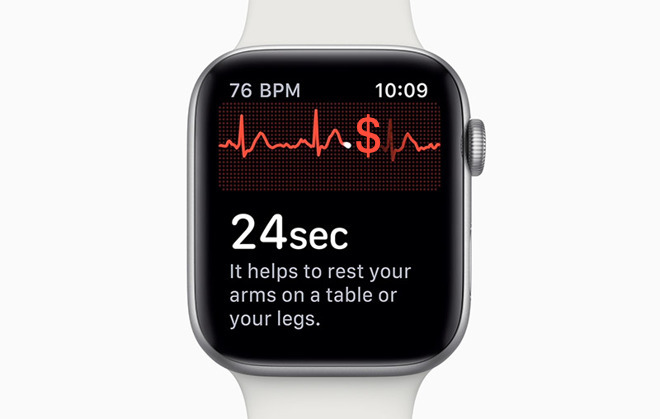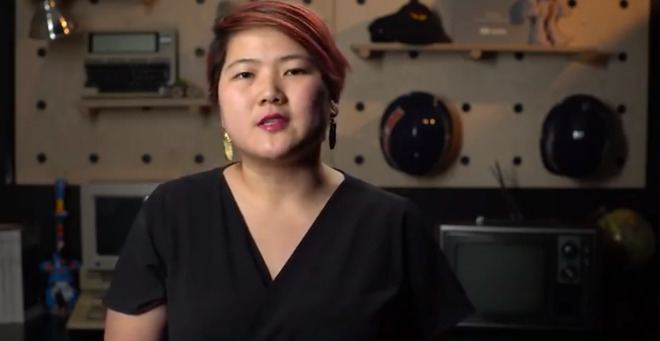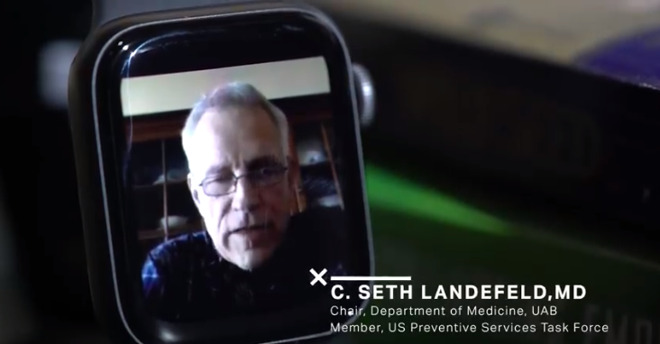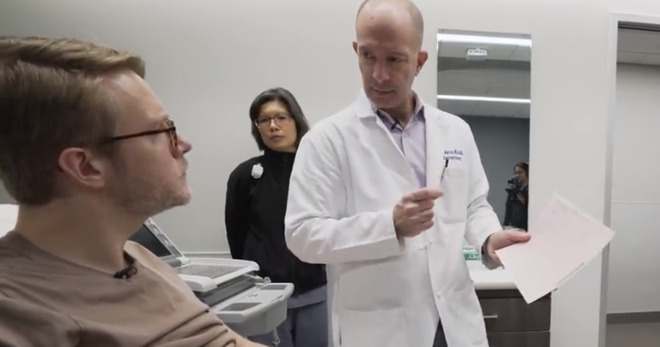Worries about Apple Watch EKG false positives are inflammatory nonsense
A new video claims that the Apple Watch Series 4's EKG feature might waste doctors' time and "in absolute worst case scenario" might conceivably lead to harm. AppleInsider gives in to the clickbait so you don't have to, and shows just how contorted and contrived the whole idea is.

Let us be really clear here -- The Verge generally makes excellent videos but its latest about "why doctors are worried about the Apple Watch EKG" is not one of them. The piece sets out from with the preconceived notion that the EKG will overwhelm the US health system with people rushing to get checked out -- and that the Watch feature could even lead to actual harm. Then when it fails to prove any of this, reporters Angela Chen and Dieter Bohn chop up interviews to make it look as if experts agree with them.
Chen leads the tabloid-style report with this claim that the Apple Watch could be harmful because of the risk of a false positive. Chen says that "the EKG itself is safe but in absolute worst case scenario, it could be a false positive that leads to treatment that is unnecessary and unsafe."

The Verge's Angela Chen
If our doctor rushed us into heart bypass surgery solely because of what he or she saw on our Apple Watches, it's not Apple we or our families would be suing afterwards. And, coronary artery disease leading to the theoretical unnecessary bypass is not the same as the arrhythmia that the Apple Watch can detect.
Nonetheless, Chen has proof they're not making wild claims. "in fact, cardiologists don't recommend using it to screen for heart problems unless you're already at risk," she says.
Keep in mind that this piece is about the Apple Watch. The Watch is in the title, it is shown throughout the video, we get a detailed explanation of how you use the Apple Watch's EKG feature. Then to absolutely underline that experts agree about the Apple Watch, the report shows an interview with a doctor where his video call is being played on an Apple Watch.
Think of the contortion that took to pull off. And then remember that when you hear Dr Charles Seth Landefel -- he's part of the US Preventative Services Task Force which we learn looked at this issue.
"There's no evidence there that the benefits outweigh the harms," he says, "and so therefore we recommended against using ECG screening for people at low risk for cardio-vascular disease."

Dr Landefeld -- on an Apple Watch
That's it, case proved. Except the US Preventative Services Task Force published that recommendation and you can read it online. There is no mention of the Apple Watch. The study was into all EKG screening, not the Watch's feature which was switched on barely a month ago.
So Dr. Landefeld seemingly wasn't even talking about the Watch and Chen does make a token nod to this fact. Immediately after his comment, she qualifies it.
"And for A-fib, the condition that Apple Watch screens for?" she says. "Similar situation. There's just not much evidence that EKG [aka ECG] is worth it if you don't already have these other symptoms."
Dr Landefeld is not the only interviewee whose contribution is sliced up into chunks that appear to support the report's objective. There's also Dr Gregory Marcus, Director of Clinical Research, University of California, San Francisco, Division of Cardiology.
"We still don't know yet how frequently the Apple Watch by itself will be sufficient versus how often physicians will not feel confident in that reading and feel that some additional monitoring needs to be done," he says. "As a researcher, it's fascinating and a great opportunity. As a clinician, it's worrisome."

The Verge reporter Dieter Bohn (left) and Dr Gregory Marcus (right)
You immediately want to know why he thinks it's worrisome, and we can actually see him start to explain or to expand on the point but we don't get to hear a word. A narration cuts in to give us the report's opinion of what worries him.
When we eventually get back to him, he's saying to Bohn that people who buy Apple Watches may well be those who are already health conscious. "Whereas the people who probably have the most to benefit from atrial fibrillation screening will tend to be the older individuals who may be less tech savvy, those who aren't as concerned about their health."
It's a good point. It's just not a criticism of the Apple Watch, and yet the report cuts Dr Marcus short in order to go on to a summary from Chen.
Chen postulates that "all this means is that the EKG might be harming all these low-risk people with all this data that might be lead them to self-diagnose and get freaked out for no good reason."
The Verge thinks that taking up a doctor's time when you might, could, perhaps be "completely okay" means you're clearly wasting the resources of a US health system that might, could, maybe become overstretched because of Apple Watch.
Let it. What body count will it take from people ignoring the Watch's recommendation for it to be an okay technology? In what world is not checking out something you're worried about better than getting something checked out that's minor?
People die because they say that "it's probably nothing" when presented with a symptom.
If our Watches notify us of a potentially life-threatening condition, we are absolutely not going to ask the doctor if he or she is busy. If it turns out that we're okay, we'll pay the bill, and we'll live with that.
The Verge came in to this thinking that the EKG feature will make more Apple Watch Series 4 owners seek medical advice. That sounds likely to us, too. But having failed to make their case, The Verge pressed on anyway and selected quotes to make it appear as if there is evidence of a shocking national emergency and it's that which is making our Watches report elevated heart rates.

Let us be really clear here -- The Verge generally makes excellent videos but its latest about "why doctors are worried about the Apple Watch EKG" is not one of them. The piece sets out from with the preconceived notion that the EKG will overwhelm the US health system with people rushing to get checked out -- and that the Watch feature could even lead to actual harm. Then when it fails to prove any of this, reporters Angela Chen and Dieter Bohn chop up interviews to make it look as if experts agree with them.
Chen leads the tabloid-style report with this claim that the Apple Watch could be harmful because of the risk of a false positive. Chen says that "the EKG itself is safe but in absolute worst case scenario, it could be a false positive that leads to treatment that is unnecessary and unsafe."

The Verge's Angela Chen
If our doctor rushed us into heart bypass surgery solely because of what he or she saw on our Apple Watches, it's not Apple we or our families would be suing afterwards. And, coronary artery disease leading to the theoretical unnecessary bypass is not the same as the arrhythmia that the Apple Watch can detect.
Nonetheless, Chen has proof they're not making wild claims. "in fact, cardiologists don't recommend using it to screen for heart problems unless you're already at risk," she says.
Keep in mind that this piece is about the Apple Watch. The Watch is in the title, it is shown throughout the video, we get a detailed explanation of how you use the Apple Watch's EKG feature. Then to absolutely underline that experts agree about the Apple Watch, the report shows an interview with a doctor where his video call is being played on an Apple Watch.
Think of the contortion that took to pull off. And then remember that when you hear Dr Charles Seth Landefel -- he's part of the US Preventative Services Task Force which we learn looked at this issue.
"There's no evidence there that the benefits outweigh the harms," he says, "and so therefore we recommended against using ECG screening for people at low risk for cardio-vascular disease."

Dr Landefeld -- on an Apple Watch
That's it, case proved. Except the US Preventative Services Task Force published that recommendation and you can read it online. There is no mention of the Apple Watch. The study was into all EKG screening, not the Watch's feature which was switched on barely a month ago.
So Dr. Landefeld seemingly wasn't even talking about the Watch and Chen does make a token nod to this fact. Immediately after his comment, she qualifies it.
"And for A-fib, the condition that Apple Watch screens for?" she says. "Similar situation. There's just not much evidence that EKG [aka ECG] is worth it if you don't already have these other symptoms."
Dr Landefeld is not the only interviewee whose contribution is sliced up into chunks that appear to support the report's objective. There's also Dr Gregory Marcus, Director of Clinical Research, University of California, San Francisco, Division of Cardiology.
"We still don't know yet how frequently the Apple Watch by itself will be sufficient versus how often physicians will not feel confident in that reading and feel that some additional monitoring needs to be done," he says. "As a researcher, it's fascinating and a great opportunity. As a clinician, it's worrisome."

The Verge reporter Dieter Bohn (left) and Dr Gregory Marcus (right)
You immediately want to know why he thinks it's worrisome, and we can actually see him start to explain or to expand on the point but we don't get to hear a word. A narration cuts in to give us the report's opinion of what worries him.
When we eventually get back to him, he's saying to Bohn that people who buy Apple Watches may well be those who are already health conscious. "Whereas the people who probably have the most to benefit from atrial fibrillation screening will tend to be the older individuals who may be less tech savvy, those who aren't as concerned about their health."
It's a good point. It's just not a criticism of the Apple Watch, and yet the report cuts Dr Marcus short in order to go on to a summary from Chen.
Chen postulates that "all this means is that the EKG might be harming all these low-risk people with all this data that might be lead them to self-diagnose and get freaked out for no good reason."
The Verge thinks that taking up a doctor's time when you might, could, perhaps be "completely okay" means you're clearly wasting the resources of a US health system that might, could, maybe become overstretched because of Apple Watch.
Let it. What body count will it take from people ignoring the Watch's recommendation for it to be an okay technology? In what world is not checking out something you're worried about better than getting something checked out that's minor?
People die because they say that "it's probably nothing" when presented with a symptom.
If our Watches notify us of a potentially life-threatening condition, we are absolutely not going to ask the doctor if he or she is busy. If it turns out that we're okay, we'll pay the bill, and we'll live with that.
The Verge came in to this thinking that the EKG feature will make more Apple Watch Series 4 owners seek medical advice. That sounds likely to us, too. But having failed to make their case, The Verge pressed on anyway and selected quotes to make it appear as if there is evidence of a shocking national emergency and it's that which is making our Watches report elevated heart rates.

Comments
When "The Verge" publishes an article stating that people who have home blood pressure gauges also might have false positives and seek care when they don't need it, then I'll take them a little more seriously. There's nothing wrong with people monitoring their own health. It doesn't mean they rush to a doctor (if we have a problem in this country, it's that they don't). It means they have a data point to tell their doctor the next time they go.
Apple watch is no replacement for Holter or other heart monitors.
Next, since the Apple Watch is not marketed primarily as a fitness device, I would assert that there are plenty of lard-butts wearing them, not just ultra marathoners. There are also a lot of older people who can use an iPhone, and therefore are also just as likely to get the Apple Watch as well. A lot of people over 50 are tech savvy enough for an Apple Watch.
Finally, if anyone has a doctor who would go from an Apple Watch ECG reading straight to treatment without any other tests or dramatically obvious symptoms, well, that doctor was going to end up killing them anyway.
It’s acually likely that the person will have lots of data points to share, rather than just one. While it’s just a single-lead ECG, the fact that it’s strapped to your wrist all the time means you’ll probably have lots of readings taken over time that you can share with your doctor, which is a benefit over a single reading taken just when the patient isn’t feeling well. There may be a lot of baseline information available that can help the doctor contextualize a concerning reading that prompts the visit.
As far as doctors are concerned, even using just the outcome of their own diagnostic equipment without further investigation would be a basis for dismissal. The Apple Watch is a free (from doctor’s point of view) diagnostic tool they need to welcome. It’s like people taking their temperature at home, seeing its elevated, before calling a doctor.
Appleinsider is quickly becoming the reality check on the BS written about Apple everywhere else. Glad you are, but sad you have to.
Give it 5 years and people forwarding Apple Watch data to doctors will be a normal, efficient, everyday thing. People and especially doctors will look back at how inconvenient the old ways were (driving to the office etc.).
Apple's vision is so far ahead of anyone. They're entering the instant health era. A future where you can wake up at 8AM to find you're at risk of pre-diabetes, instead of finding out 12 years later that you've been diabetic and been eating cake the whole time. Even scarier, imagine in 2 decades Apple Watch informing you that you have a few cells of cancer that should be treated immediately?!
So YES, Apple Watch is a replacement for outdated tech and I won't get off your lawn!!
In the future the heart monitoring functions will be able to diagnose/warn us of a lot more issues. Just think back to the first Apple Watch and how it was only used to monitor our heart rate. We've come a long way and we've got a long way to go. If Apple can get the battery issue fixed we could even see all day EKG so those who don't care about the feature will still get warnings.
Some people like me HATE absolutely HATE going to the doctor. If a $400 Watch in 2020 can tell me "hey buddy, you're insulin is changing toward pre-diabetic levels. Slow down." Then the device is worth much more than what Apple is charging.
On the main subject, About a half a year ago, I literally discovered that I have a-fib and atrial flutter because of my using the Gen 3 Apple Watch to discover, and consequently check on, a racing heartbeat. If I'd had the Apple Watch's ECG capability, I likely would have been alerted sooner.
And beyond that, as the investigation of my heart has continued, another major issue with my lungs that I almost certainly would have missed has been discovered.
I'm going to be 73 in March, btw....
Years ago the Verge gave iPhone a good review and the android fanboys immediately dismissed the Verge as being a "paid Apple site".
Apple news is only real news when it's bad news.
Then, I would probably drive myself (or be driven) to an emergency room. I would not call an ambulance because the price of an ambulance ride is insane. You may end up paying thousands of dollars just for an ambulance trip. Believe me, it happened to me even though I had insurance.
At the emergency room, I would be at the mercy of their triage team, depending on what their views are of this new feature in the Apple Watch. Perhaps, in some emergency rooms, I would be put in the front of the line and immediately taken to the back for an EKG. It's also very possible that in other emergency rooms, I would be scoffed at for coming with this silly reason and placed at the end of line.
If the latter happens, I would probably be mad and worried for hours while waiting in the reception room for my turn. Then, I would probably wait in one of the rooms in the back for a few more hours until they finally come to do my EKG. Then, about three or four hours later (totaling 7-8 hours of waiting), a doctor (or most likely a PA) would show up and tell me that there may be a little deviation from the norm in my EKG and that I need to see a cardiologist. Two thousand dollars later, I will come home in the middle of the night, worried, upset, etc.
The following day, I would call a cardiologist to make an appointment, and would go through the regular cardio checkup.
I'm a little ambivalent about these new features. I'm sure there will be people whose lives it will save, but I'm afraid there will be people who will have a heart attack from a self-diagnosis. So for now, I will stick with my Series 3 watch.